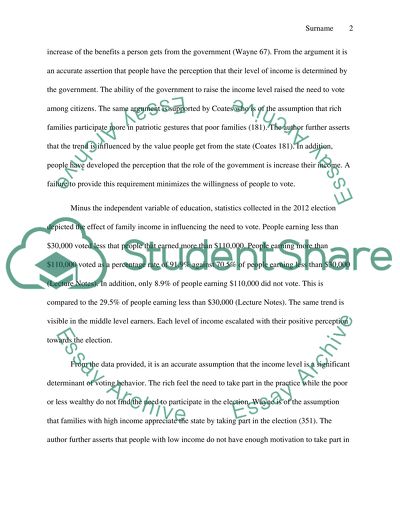Cite this document
(“Voting Behavior: The 2012 Election Research Paper”, n.d.)
Retrieved from https://studentshare.org/social-science/1671990-voting-behavior-the-2012-election
Retrieved from https://studentshare.org/social-science/1671990-voting-behavior-the-2012-election
(Voting Behavior: The 2012 Election Research Paper)
https://studentshare.org/social-science/1671990-voting-behavior-the-2012-election.
https://studentshare.org/social-science/1671990-voting-behavior-the-2012-election.
“Voting Behavior: The 2012 Election Research Paper”, n.d. https://studentshare.org/social-science/1671990-voting-behavior-the-2012-election.


